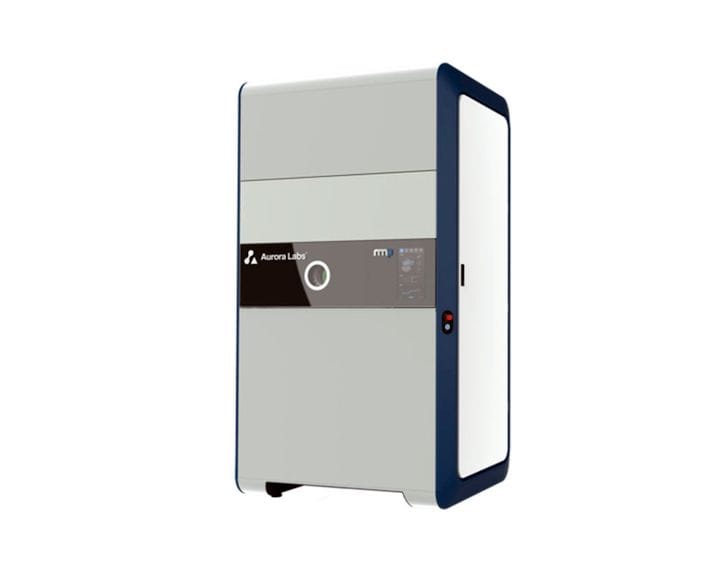![Aurora Labs’ RMP1 metal 3D printer [Source: Aurora Labs]](https://fabbaloo.com/wp-content/uploads/2020/05/image-asset_img_5eb0a41f2faeb.jpg)
Aurora Labs announced an interesting partnership this week.
The Australian company is seeking to develop a powerful metal 3D printer, theoretically capable of printing up to 1,000kg in a single day. That’s vastly more than typical metal 3D printers can accomplish, and there’s a reason for this capability.
Aurora Labs hopes to deploy a system that can rapidly 3D print replacement parts for remote mechanical operations, such as mining or shipping. Both of these industries employ huge metal mechanical parts that, of course, break from time to time. When that happens the industrial operation stops, and much money is lost. They hope to reduce those losses by producing replacement parts onsite rather than having the operation wait for days or even weeks for traditional replacement parts to arrive via conventional transport.
It’s a great idea, but can Aurora Labs pull it off?
This is the biggest question of any startup venture: is the product truly wanted by the target market? Smart startups will attempt to validate the concept with actual customers as soon as possible, either to change the solution to something that works, or in some cases abandon the idea.
It’s a standard process that I look for in startups. If they are not doing this, then something is likely amiss and they may not succeed.
In Aurora Labs’ case, they seem to be following the script most appropriately. One part of the process is to develop what’s known as a minimum viable product, the most basic form of the product that can be sold to clients.
This is in fact what Aurora Labs has been doing. Recently they announced progress on their machine, which hasn’t quite yet reached the target capacity, but is well on the way to doing so.
Now they’ve announced another key step in this sequence: They have a signed term sheet with a potential client, Fortescue Metals Group, an actual mining company.
This is the step where Aurora Labs has persuaded someone in the target market to believe they’re on to something, something worth a try, even though it has not yet been proven. Every startup business must have a volunteer client take on this role.
Now Aurora Labs has one. The first one.
Aurora Labs says:
“The non-binding agreement comprises an Industry Partner Program, which involves the opportunity for Aurora to work directly with Fortescue on the Company’s 3D printing technology to demonstrate the potential for application of Aurora’s Rapid Manufacturing Technology (RMT) in the mining industry. The venture could progress to Aurora potentially developing technology or processes that may reduce production and operation costs in the mining and resources sectors.”
They make it very clear that this is not a sale or other event that generates revenue:
“Whilst Aurora is optimistic that a more definitive arrangement may be reached, there is no assurance that any legally binding agreement will be entered into or that any matter contemplated by the Term Sheet will be completed.”
Some may say that this announcement is not a big deal because there’s no evidence of money, but that’s not at all what it’s about. It’s about validating the concept.
And if that is successful, they then move on to the next step.











Aerosint and Aconity have proven out their work in multi-metal powder deposition 3D printing.